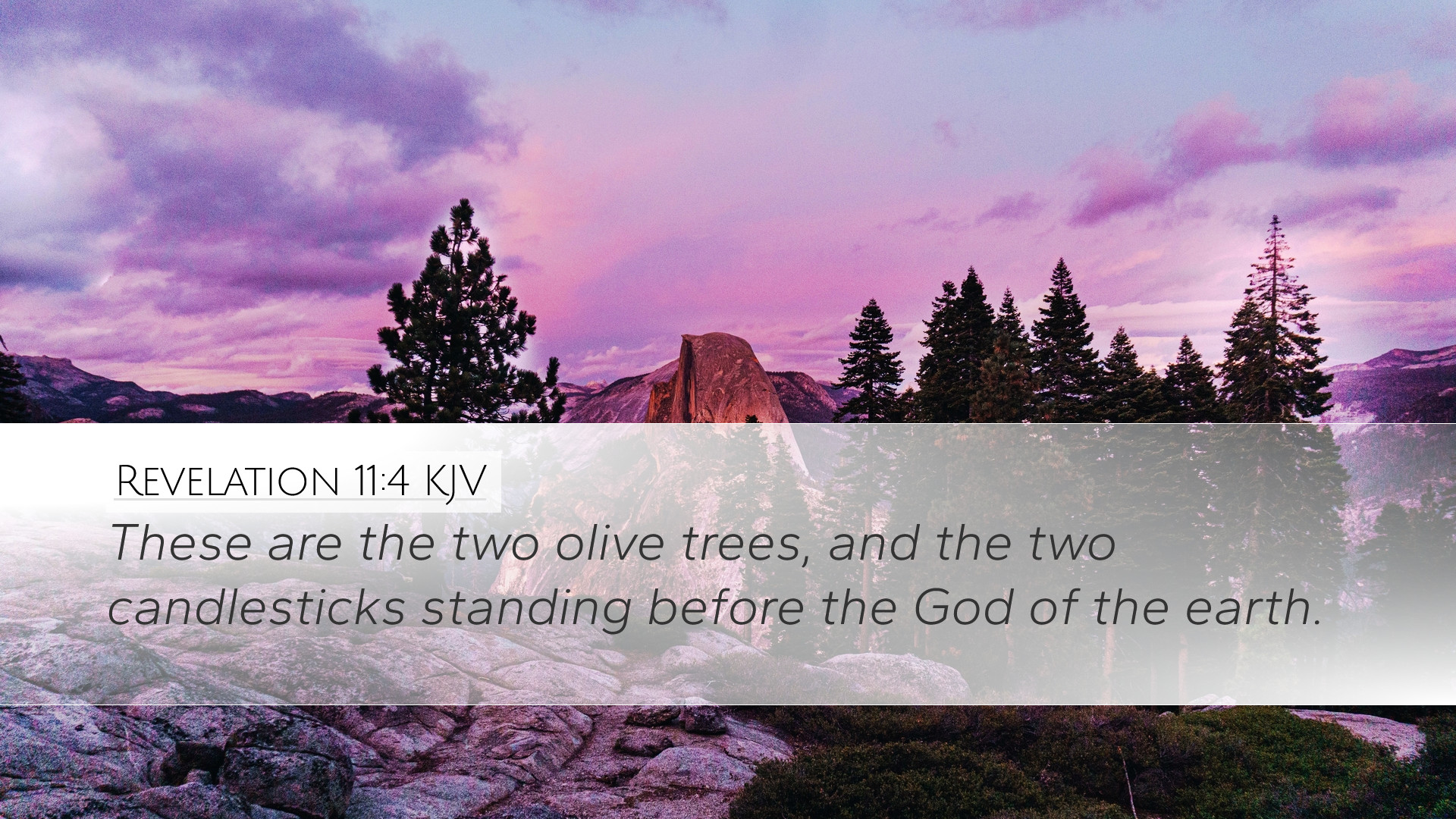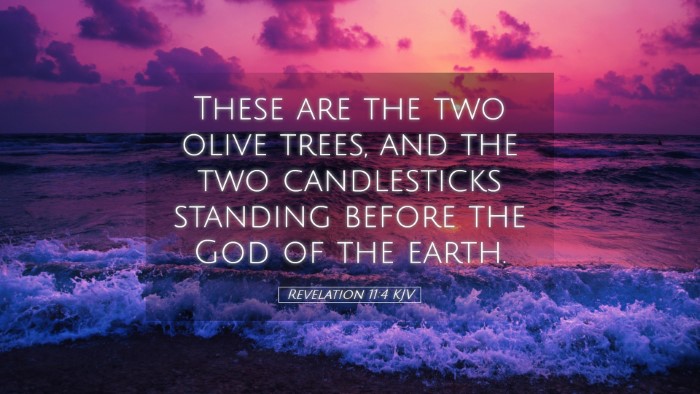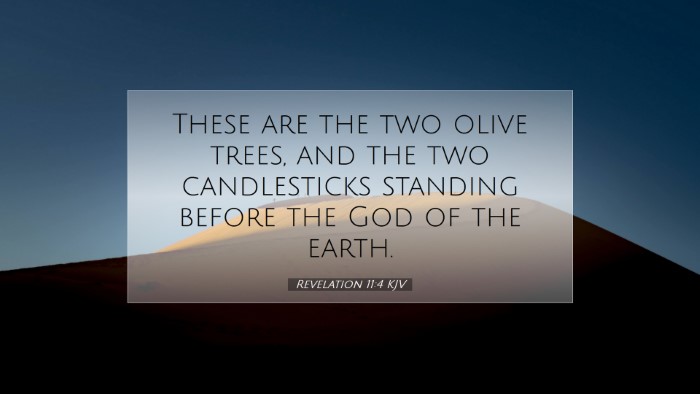Commentary on Revelation 11:4
Verse Context: Revelation 11:4 states, “These are the two olive trees and the two lampstands standing before the God of the earth.” This verse is part of a larger narrative concerning the two witnesses, who have a significant role in the prophetic vision of the end times.
Introduction
The passage of Revelation 11:4 is rich with imagery and symbolism, drawing from the Old Testament and carrying profound theological implications. As we explore the insights from esteemed commentators such as Matthew Henry, Albert Barnes, and Adam Clarke, we can extract both historical and spiritual meanings that resonate deeply for pastors, theologians, and students of Scripture.
Symbolism of the Olive Trees and Lampstands
Olive Trees: The mention of "two olive trees" is significant in its allusion to Zechariah 4:3, where the olive trees are symbolic of God’s anointed ones. Matthew Henry notes that olive oil represents the anointing of the Holy Spirit, suggesting that these witnesses are empowered by divine presence. This indicates that their ministry is not one of human strength but is sustained by God’s Spirit.
Lampstands: The "lampstands" are a recurring metaphor throughout Revelation, indicative of the church (see Revelation 1:20). Albert Barnes highlights this connection, explaining that lampstands signify the presence of God and the light of His truth in a dark world. This dual imagery emphasizes the witnesses' roles as both representatives of divine authority and bearers of the gospel light.
The Role of the Two Witnesses
The two witnesses mentioned in this passage are integral to the apocalypse narrative and serve specific functions within God's plan. They embody the prophetic witness to the worship of God amid apostasy and rebellion. Adam Clarke provides insights on their significance, suggesting that they represent the law and the prophets, or Jewish and Gentile believers, tasked with proclaiming God’s truth in a time of great tribulation.
Historical Context
Understanding the historical context in which John wrote the Book of Revelation is crucial. The early church faced persecution and opposition, often depicted as challenges against God's people. Matthew Henry posits that the two witnesses affirm God's protection and vindication in the midst of adversity, reflecting the promise that those who stand for God will ultimately overcome despite tribulations.
Theological Implications
There are significant theological interpretations embedded within Revelation 11:4. The interplay of the olive trees and lampstands suggests a perpetual and faithful witness to God’s sovereignty. Strength from God: Clarke elucidates that the emphasis on two witnesses underscores the biblical principle that "in the mouth of two or three witnesses every word may be established" (2 Corinthians 13:1), reaffirming the authenticity of their testimony.
Application for Today’s Believers
As modern-day believers, the essence of the two witnesses instructs us in several key areas:
- Boldness in Witness: We are called to be bold witnesses for Christ, just as the two witnesses fulfilled their prophetic roles despite the risks they faced.
-
- Reliance on the Holy Spirit: Their reliance on the olive oil symbolizes our need for continuous empowerment by the Holy Spirit to fulfill our callings.
- Faithfulness amidst Opposition: The narrative of the two witnesses encourages perseverance in faith, reminding us that God is sovereign over trials.
Conclusion
Revelation 11:4 beckons us to consider the profound interplay of God’s sovereignty, the empowerment by His Spirit, and the essential call to witness. The insights from Matthew Henry, Albert Barnes, and Adam Clarke coalesce into a deeper understanding of this text, urging the church across generations to stand firm in faith and illuminate the world for Christ, even in the face of profound opposition.
As we meditate on these verses, let us embrace our role as modern witnesses, finding strength in God’s promises and the guiding power of the Holy Spirit, ensuring our lampstands shine brightly for the glory of God.


